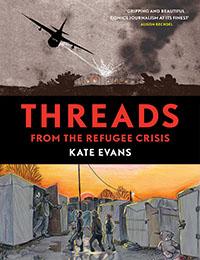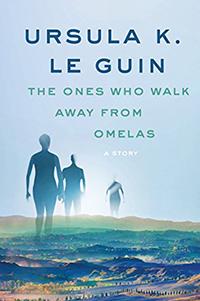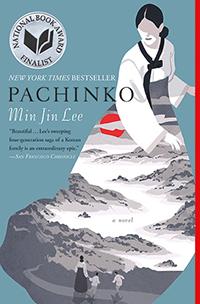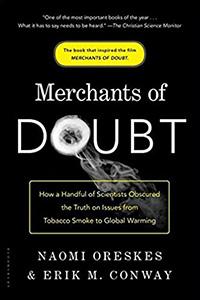Welcome to this year's list of reading recs, hand-picked by CGD researchers and staff. Whether you want to take an in-depth look at the human smuggling industry, find out how a Mars rover works, or beat the heat with a vivid depiction of a Cornish Winter, you're sure to find something here to round out your summer reading list.
If you'd like to get more reading recommendations from CGD, be sure to sign up for our weekly What We're Reading newsletter to have them delivered right to your inbox!

SPQR: A History of Ancient Rome by Mary Beard
"This is an engrossing and sweeping history of the Roman republic and early empire, and it’s striking how relevant the political debates and crises still feel. Mary Beard’s exploration of how Rome struggled with questions of citizenship, identity, and the breakdown of a political system feel particularly timely right now." —Jeremy Gaines

The Origin of Wealth by Eric D. Beinhocker
"A brilliant outline of how complexity economics can help to reform economics from its reliance on static, equilibrium concepts that have hampered the discipline and held it back for over a century. This book is not in line with the straw man industry of books criticising economics. Its subversiveness comes not from an anti-establishment or radical ideology—the author is a senior McKinsey fellow and the proposed model champions business—but from a technical critique of the limitations of general equilibrium models and a rigorous analysis of a more holistic alternative. This alternative is drawn from evolutionary theory and is a fascinating, complex, realistic take on how individual activity leads to emergent patterns in the economy which drive growth and wealth creation. The best economics book I have read for many years." —Lee Robinson

The Case against Education by Bryan Caplan
"The basic argument of this book is that higher education in the USA is mainly about signaling, not learning, and hence the vast expansion in higher education is mostly wasted motion from a public welfare point of view (and even, for the marginal entrants, not even necessarily privately renumerative). This is important for development because the main impetus is for all countries to just keep expanding years of schooling to universal secondary, to universal tertiary, etc., and the private sector is a big—and not at all benevolent—player in this. This is setting countries up for failure and frustrated aspirations." —Lant Pritchett

How to Rig an Election by Nic Cheeseman and Brian Klaas
"If you believe that the integrity of voting is essential to democracy (I certainly do!) then this is the most important book in many years. The authors show how elections are systematically stolen in the modern era, drawing on examples from Ukraine to Zimbabwe to the USA. Worse, they show how international election observers make things worse by missing how elections are now rigged and too often endorsing a flawed poll. Naive rubber-stamping winds up strengthening not democracy but the thieving autocrats." —Todd Moss

Grant by Ron Chernow
"Don’t let the length deter you. For anyone who wants to understand a true American hero, one of our most underappreciated presidents, and the painful story of Reconstruction, this is a must read. Grant’s character has been described as a mystery even to himself. Chernow chronicles his military triumphs and defeats, his critical post-war role, and personal courage and honesty, along with his repeated business failures and struggles with alcoholism. Once again, as in Hamilton, Chernow helps to restore a misunderstood and eclipsed figure to his rightful place in our history." —Nancy Lee

Threads from the Refugee Crisis by Kate Evans
"In this visually and emotionally striking graphic novel, cartoonist and activist Kate Evans transports us to the French refugee camp in Calais known as the Jungle, where she served as a volunteer. She combines her own vivid drawings with photographs, social media posts, and her notes from the field to interweave the threads of the camp's residents, the volunteers, law enforcement, and her own family into one heart-wrenching but urgently important portrait of a failing system." —Stephanie Brown

Homegoing by Yaa Gyasi
"A great book for anyone who enjoys historical fiction and luminous prose. It starts in the early 18th century in the Gold Coast of Africa, during the height of the slave trade, and follows the story of two sisters and their descendants. Yaa Gyasi provides a captivating tour de force of history on both sides of the Atlantic, with every two chapters covering a new generation. One line of descendants makes its way in the US, first as slaves and then in the post-war South, and the other stays in the Gold Coast, first as slave traders and later through colonialism—with reverberations across the Atlantic felt throughout the tragic, and ultimately hopeful journey." —Jimmy Graham and Cindy Huang

An American Marriage by Tayari Jones
"A quick but emotional read. In this novel, Tayari Jones explores issues from race and the American justice system to marriage, family, and coping with circumstances beyond our control. Told from the perspectives of three people, this story explores the lives of a newly married couple and their loved ones after the husband has been wrongfully incarcerated." —Sarah Vaugeois

When I Hit You; Or, a Portrait of the Writer as a Young Wife by Meena Kandasamy
"This is a stunning work of fiction, a chronicle of a new marriage as it descends from ideals to violence in only four months. The unnamed narrator gives a first-person account of her life, using humour, distraction and memories to retreat from the physical violence and mental abuse she faces every day with increasing intensity. Often surprisingly funny, the writer lets the reader get to know her as a whole person with a history, opinions, ambitions, and—crucially—a future beyond violence." —Joanna Redhead

The Design and Engineering of Curiosity by Emily Lakdawalla
"While it tells a story, this book reads a lot like a technical manual. It starts with a history of the mission concept and development, then moves on to a description of the rover and each of its instruments. Intermixed with the technical charts and tables are stories about design compromises, component failures and work arounds, and management of a rover no one can 'power on and off again' in the event of a problem—all while working on Martian time, where each day is 24 hours and 37 minutes long and it takes an average of 14 minutes for radio signals to get to Mars." —Mike Brown

The Ones Who Walk Away from Omelas by Ursula Le Guin
"This free short story is about what we are willing to allow others to suffer in order to ensure happiness and prosperity for the rest of society. Recent events might make it seem sadly on-the-nose, but the story encourages readers to make their own judgements." —Ella Stelter

Pachinko by Min Jin Lee
"This book, which goes through the experiences of generations of a Korean immigrant family in Japan from the Japanese occupation to modern era, is a must-read for historical fiction fans. It captures the experiences of immigrant life in a different culture and setting and provides a unique perspective for the current political discussion on immigration. Once you start the book, it’s really hard to put it down!" —David Park

The Chinese Must Go: Violence, Exclusion, and the Making of the Alien in America by Beth Lew-Williams
"This is a brand-new and brilliant history of the American movement that succeeded in making almost all Chinese immigration illegal for 83 years (1882 to 1963), written by Princeton historian Beth Lew-Williams. It is especially helpful in showing the circularity of the politics: many of the incidents used politically to justify excluding Chinese people were themselves the product of exclusion." —Michael Clemens

The Return by Hisham Matar
"A deep dive on Libya from the perspective of someone who left for the UK and returns after 30 years. It’s quite nuanced and captures numerous aspects of Libya, the Qaddafi years, and the after-years." —Kate Gough

Feral by George Montbiot
"Traversing Welsh rivers and goldmines in the Brazilian rainforest, Montbiot’s vivid experiences with nature build out a fine piece of non-fiction, one that offers pause and reflection about our relationship with the natural environment. While he peppers the pages with numbers and figures where appropriate, it is his advocacy for environmentalism, founded in unexpected interactions and variation, that is most striking. Though one may finish by lamenting once-populous oceans, there is great warmth in Montbiot’s depiction of the capacity of nature to regenerate and of wildlife to return to areas once inhabited." —Lorcan Clarke

Blitzed by Norman Ohler
"While we’re living in the age of the opioid epidemic, where opiods are a public health concern in the US and globally today, Blitzed is a fascinating historical account of how opioids had a completely different influence on society, and possibly the course of history, during World War II." —Cassandra Nemzoff

Merchants of Doubt by Naomi Oreskes and Erik M. Conway
"I’d like to think that society can start with shared evidence based on science and research, and then move on to deliberate over which policies might be better, worse, or acceptable. This book shows the naivete of that view. Meticulously and exhaustively researched by two historians, the book exposes a group of people who were (and are) so consumed by their opposition to any kind of government regulation that they prefer to undermine the legitimacy of the entire scientific community. The same people—not experts in these fields—were behind attacks on the evidence showing that tobacco causes cancer, that power plants cause acid rain, that aerosols are responsible for the Ozone hole, and that CO2 emissions are causing climate change. They have even been broadcasting a revisionist perspective on Rachel Carson’s work on pesticides that ignores ecological issues like the emergence of pesticide resistance. This book is a must read for anyone concerned with preserving the legitimacy of science and making it possible for us to make future policies on the basis of reality." —Bill Savedoff

Migrant, Refugee, Smuggler, Saviour by Tuesday Reitano and Peter Tinti
"A very interesting look at the human smuggling industry (focusing mainly on routes to Europe). It examines business models, roles within the industry, back-of-the-envelope estimates of profits, etc., and contains lots of interviews with smugglers from the foot soldiers loading people onto dinghies to the kingpins making millions. A key argument is that smugglers are basically providing a service, for which there is great (and growing) demand. Some may be evil, but many others are would-be refugees or migrants themselves, and many are genuinely trying to help their friends, families, or others in the same ethnic group. The book also argues that the brutal nature of the industry is partly a consequence of harsh migration policies: the more difficult or more dangerous it is to reach Europe, the more the industry will be monopolised by criminal enterprises who have cut their teeth smuggling weapons or narcotics, and are simply diversifying into a new market." —Euan Ritchie

Blue Remembered Earth by Alastair Reynolds
"Apocalyptic science fiction is perpetually in vogue, but this series is set in a future that is neither entirely utopian nor completely pessimistic. Its unique contribution is to imagine a plausible future where humans have ceded some of their willful autonomy to 'The Mechanism,' a kind of network implant that intervenes before humans can engage in interpersonal violence. Especially fascinating is Reynolds' exploration of a libertarian 'state' on the Moon called the 'Unsurveilled Zone' where everyone voluntarily gives up access to The Mechanism in order to retain individual autonomy and freedom." —Kyle Navis

Pushing Thirty by Necole Ryse
"With a dash of romance and humor, Pushing Thirty is every millennial's life story—a tale of sisterhood, the dark and light sides of family, and what can happen when you let love in." —Ashley West

Taming the Sun by Varun Sivaram
"An even-handed but optimistic take on the history and future of the solar revolution. Varun, a PhD physicist, brings an insider’s perspective on the industry with a conversational tone that is simultaneously accessible and informative." —Jacob Kincer

Desert Exile by Yoshiko Uchida
"This memoir by renowned children’s author Yoshiko Uchida, whose Japanese-American family was interned in a World War II camp in Utah, is a thought-provoking and beautifully written look at a dark chapter in American history. I first read this book several years ago, and never fail to be moved and inspired by Uchida’s remarkable courage and sense of humor." —Mallika Snyder

The Death of Mrs. Westaway by Ruth Ware
"This is the perfect summer diversion. Hal, a young woman who has lost her mother and is being threatened by a violent loan shark, finds love and family where she least expects it. And the vivid descriptions of a Cornish winter may help you feel cooler." —Kim Elliott
Disclaimer
CGD blog posts reflect the views of the authors, drawing on prior research and experience in their areas of expertise. CGD is a nonpartisan, independent organization and does not take institutional positions.

